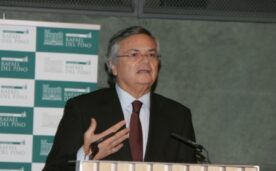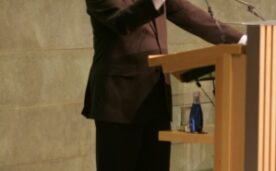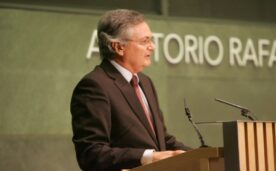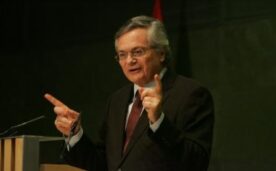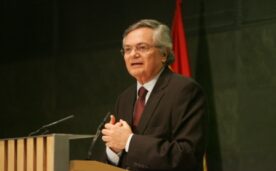The Rafael del Pino Foundation hosted the Master Lecture by Moisés Naím entitled "Power and ideas in the 21st century: who has them, who had them but has lost them and who needs them", which closed the series of master lectures "Lessons of the crisis", on 17 November 2010.
Moisés Naím said: "What we have seen in all cases of crisis - in Greece and now in Ireland - is that there is a first stage of denial, then rejection, then non-acceptance, and then, little by little, the existence of a crisis that requires very profound decisions that have been postponed until they are taken when it is already too late. The example of Greece is clear: if the reaction had been taken earlier, not after six months of negotiations and denial by European countries, especially Germany and Greece itself, the cost of the bailout would have been half of what it turned out to be. We must learn that these crises first generate rejection and denial, then resignation and, inevitably, the measures that the situation requires.
Moisés Naím argued that: "at the G-20 meeting in Seoul, the diversity of the group has reflected the conflicting interests of these countries, which have differences in their problems and growth, in the valuation of their currency, in their trade relations and in their way of attacking the crisis. All this diversity prevents major agreements. In any case, it is important that they meet, as certain agreements are reached. In Seoul, progress was made on technical issues, perhaps minor on the whole, but important. For example, the IMF's decision-making process now more closely reflects the distribution of financial power in the world, unlike before, when it showed the structure derived from the Second World War. But the world is waiting for a lot, as the problems remain serious and there are stagnant countries whose populations are anxiously waiting to see the light at the end of the tunnel.
